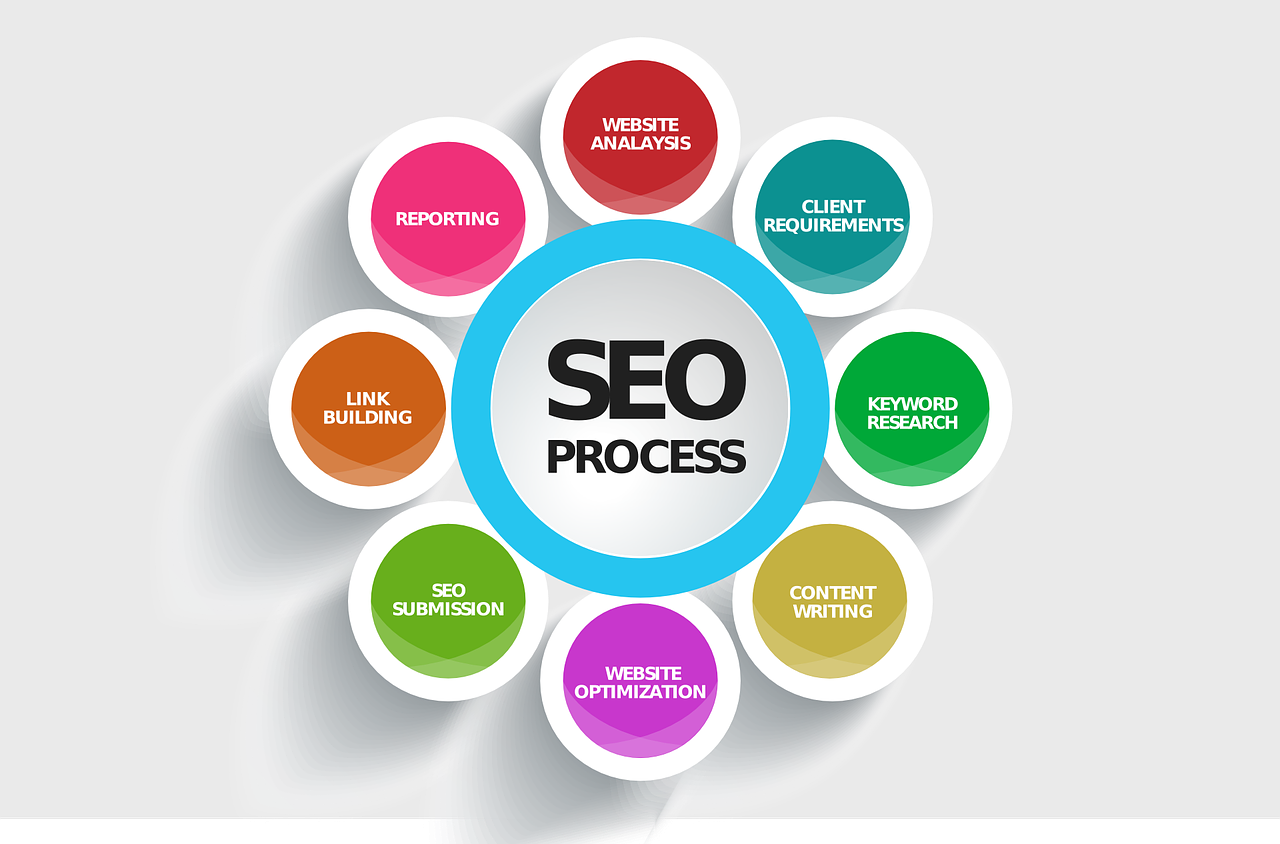Search Engine Optimization
Serving Orlando & surrounding areas
Get your FREE instant SEO audit now
We will respond to you within 24 Business Hours
Search Engine Optimization
Welcome to Neat Metric Inc. website, where we delve into the world of SEO (Search Engine Optimization) to help you boost your online visibility and drive organic traffic to your website. SEO is a critical component of any successful online marketing strategy, and our goal is to provide you with comprehensive insights and practical tips to optimize your website for search engines like Google, Bing, and more.
Discover the latest SEO techniques, stay updated with algorithm changes, and unlock the potential to rank higher in search engine results pages (SERPs). Let us guide you on the path to greater online visibility and increased website success with our SEO expertise.

Search Engine Optimization (SEO) is a crucial aspect of digital marketing that focuses on optimizing websites to improve their visibility and rankings on search engine results pages (SERPs). With the increasing competition in the online sphere, having a solid SEO strategy has become essential for businesses to attract organic traffic and stay ahead of the competition.
One of the key goals of SEO is to drive organic traffic, which refers to the visitors who find a website through search engine queries rather than paid advertisements. By optimizing a website’s content, structure, and other relevant factors, SEO helps search engines understand the website’s relevance to specific search queries, thus increasing its chances of appearing prominently in search results.
Keyword research plays a vital role in SEO. It involves identifying the search terms and phrases that are relevant to a business’s products, services, or industry. By strategically incorporating these keywords into the website’s content, meta tags, and other elements, businesses can increase their visibility for specific search queries and attract more targeted traffic.
On-page SEO involves optimizing various on-page elements of a website to make it search engine friendly. This includes optimizing title tags, meta descriptions, header tags, and URLs to reflect the website’s content and target keywords. It also involves creating high-quality, relevant, and engaging content that satisfies users’ search intent and encourages them to stay on the website.
Off-page SEO focuses on improving a website’s authority and reputation through external factors. This includes building high-quality backlinks from reputable websites, engaging in social media marketing, and participating in online communities to increase brand visibility and credibility. Off-page SEO signals help search engines assess the website’s trustworthiness and relevance.
Technical SEO involves optimizing the technical aspects of a website to enhance its crawling and indexing by search engines. This includes optimizing site speed, improving mobile responsiveness, fixing broken links, and implementing proper schema markup. Technical SEO ensures that search engines can efficiently crawl and understand the website’s content, resulting in better visibility and rankings.
Regular monitoring and analysis of SEO performance are crucial. By utilizing tools like Google Analytics and Google Search Console, businesses can gain valuable insights into website traffic, user behavior, keyword performance, and more. This data helps identify areas for improvement and guides the optimization efforts.
It’s important to note that SEO is a long-term strategy. Achieving significant results may take time and consistent effort. Search engines continually update their algorithms, so staying updated with industry trends and best practices is crucial to maintaining a strong SEO presence.
In conclusion, Search Engine Optimization (SEO) is an essential digital marketing strategy that helps businesses improve their visibility, attract organic traffic, and stay competitive in the online landscape. By optimizing various on-page and off-page factors, conducting thorough keyword research, and monitoring performance, businesses can effectively enhance their online presence and drive long-term success.

Our SEO Approach
Keyword Research:
- Identify relevant keywords and phrases related to digital marketing, targeting both broad and specific search terms.
- Utilize keyword research tools to assess search volume, competition, and user intent.
- Focus on long-tail keywords to target specific audience segments and capture niche traffic.
On-Page Optimization:
- Optimize website content and meta tags (titles, descriptions) with targeted keywords.
- Ensure proper header hierarchy (H1, H2, etc.) and use keywords naturally within headings.
- Optimize URL structures, making them descriptive and keyword-rich.
- Improve page loading speed for better user experience and search engine rankings.
- Implement schema markup to enhance search engine understanding of your content.
Content Strategy:
- Create high-quality, informative, and engaging content related to digital marketing.
- Publish regularly to demonstrate freshness and relevance.
- Optimize content for target keywords, ensuring it provides value to users.
- Incorporate multimedia elements such as images, videos, and infographics to enhance engagement.
- Promote content through social media, email marketing, and guest posting to attract backlinks.
Technical SEO:
- Ensure your website is crawlable by search engines. Fix any broken links or errors.
- Implement a sitemap and submit it to search engines for indexing.
- Optimize website structure and navigation for easy user experience.
- Enable HTTPS for a secure website and better search engine rankings.
- Implement responsive design for mobile-friendliness.
Link Building:
- Develop a link-building strategy to acquire high-quality backlinks from reputable websites.
- Reach out to industry influencers and websites for guest posting opportunities.
- Engage in content outreach and build relationships with other relevant websites.
- Monitor and disavow any toxic or low-quality backlinks to maintain a healthy link profile.
Analytics And Monitoring:
- Set up Google Analytics and other tracking tools to monitor website performance.
- Track keyword rankings, organic traffic, bounce rates, and conversions.
- Continuously analyze data to identify areas for improvement and adjust the SEO strategy accordingly.


